About Ivana Flynn
Ivana Flynn is a seasoned SEO director and consultant, widely recognized for her expertise in iGaming SEO and her ability to navigate one of the most competitive search landscapes online. With over 17 years of experience, she has become a respected strategist known for blending technical SEO, advanced link building, and community-driven tactics to achieve results where others fall short. Beyond her client work, Ivana is an active speaker and moderator at industry conferences, where she shares her expert perspective on what really works in gambling SEO. She also runs her own SEO-focused YouTube channel, where she educates and inspires both newcomers and SEO professionals by breaking down complex strategies into practical insights. A pioneer in leveraging Reddit and community platforms for organic growth, Ivana has shown how unconventional spaces can drive authority, brand visibility, and search performance. Her work continues to influence how operators, affiliates, and SEOs worldwide think about competing in high-stakes niches.
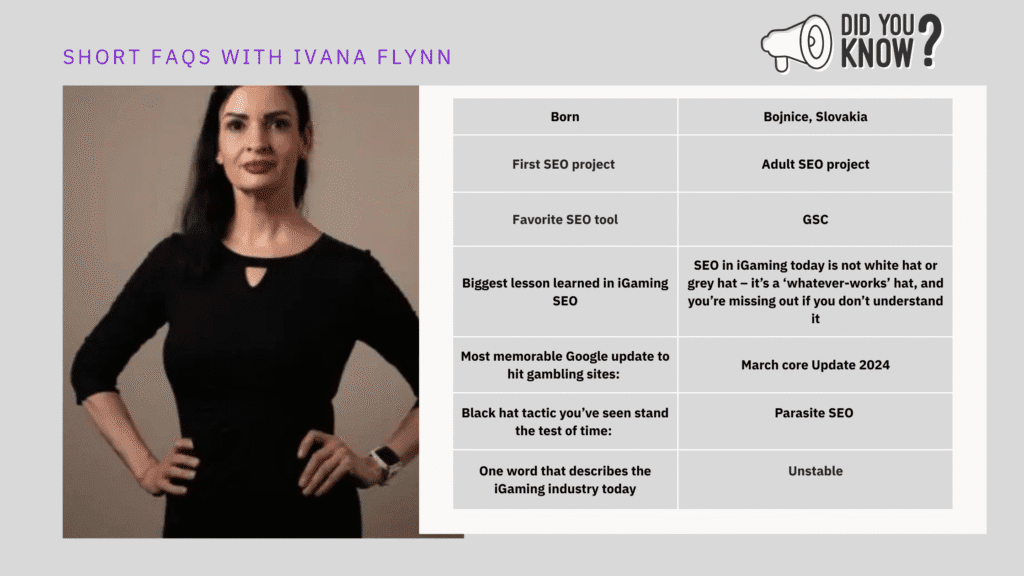
Interview- the Evolution of Black Hat Tactics in iGaming Industry
Ivana Flynn’s expertise sits at the intersection of technical precision, creative tactics, and thought leadership. Whether she’s helping operators and affiliates withstand the volatility of Google updates, exploring black hat strategies that continue to evolve, or demonstrating how communities like Reddit can become growth engines, her insights carry weight in the SEO world. In this interview, Ivana reflects on the evolution of black hat SEO — from cloaking and link farms to parasite SEO — and how these tactics have adapted to slip under the radar in iGaming. She also shares how her unique mix of technical depth, community expertise, and on-stage experience has shaped her perspective on what it really takes to stay ahead in competitive search.
Q: Hi Ivana, I am so happy to be talking to you today. You’ve been in SEO long enough to witness the evolution from early tactics like cloaking and link farms to today’s parasite SEO and automation. Looking back, how would you describe the major turning points in black hat SEO — and how has the iGaming industry in particular shaped or accelerated those changes
A: SERPs are extremely unstable and unpredictable for iGaming affiliates in 2024 and 2025. SEOs lost their patience with Google’s unfair game and started to bring more black hat to their strategies. If you look at SERPs these days, what do you see: Australia is dominated by parasite SEO, unregulated Sweden with dropped domains, Germany with SEO partnerships (Bild.de ranking no 1 for online casinos). Shortcuts are sadly the norm of good performance. Of course, SEOs are pushed to bring results, and if the white hat is not working, they don’t really have another choice.
Q: Looking back, cloaking, keyword stuffing, and link farms once dominated black hat SEO. Which of these early tactics, if any, still have echoes in today’s strategies?
A: Well, SEO tactics are like fashion; they keep coming back at different times. The hard truth is that websites following the best SEO practices and living by the Google advice got punished with deranking and got whipped out of SERPs, especially in 2024. Many SEOs turned to black/grey hat as these practices work faster. Right now, there is very little long game in the iGaming affiliation space. Big and small websites that don’t break Google rules suffer. Websites that run on dropped domains, use redirects, and Parasite SEO are being rewarded. You want to win in the SERPs; time to play dirty.
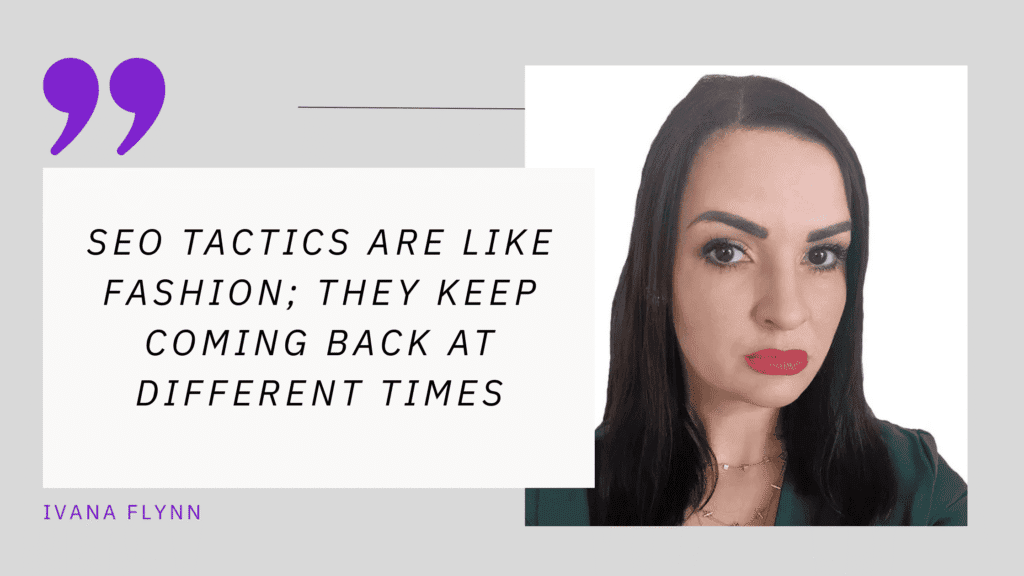
Q: In the iGaming industry, competition is brutal and regulation is tight. Do you think that pressure is what pushes affiliates and operators to experiment with black hat tactics more than in other niches?
A: Well, we see the ‘creative SEO’ mainly on the affiliate part, but of course, operators are not immune to usage of these practices. Mainly if we are talking about the prohibited markets such as Turkey. There is no other way to be there than to use cloaking. I would say that we see black and grey practices in black and grey markets more than in the regulated ones, where these practices are not necessary to succeed.
Q: Parasite SEO often relies on leveraging authority domains. You reported often this tactic is being used successfully in iGaiming. Could you give us a few examples? What makes it especially effective (or dangerous) in this space?
A: Cross my heart and hope to die…what are SERPs these days all about? Authority! It is a game of who has the biggest link budget, because, yes, we all buy links.
So yes, Parasite works because the authority is there, and this leads to a quick win. Parasite can be done in a post like this: https://www.bild.de/casinos/
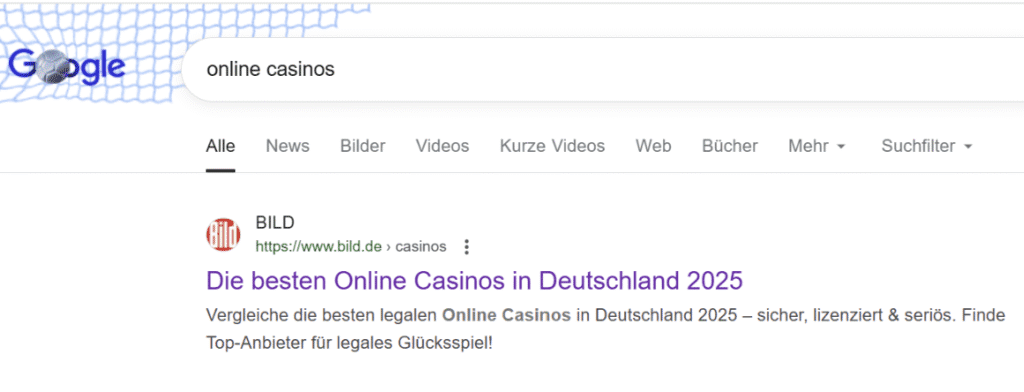
Source: Nightwatch Search Simulator
Simple toplist with affiliate links. This path of ‘casinos’ is supported with many links (bought) pointing to the parasite path of the website:
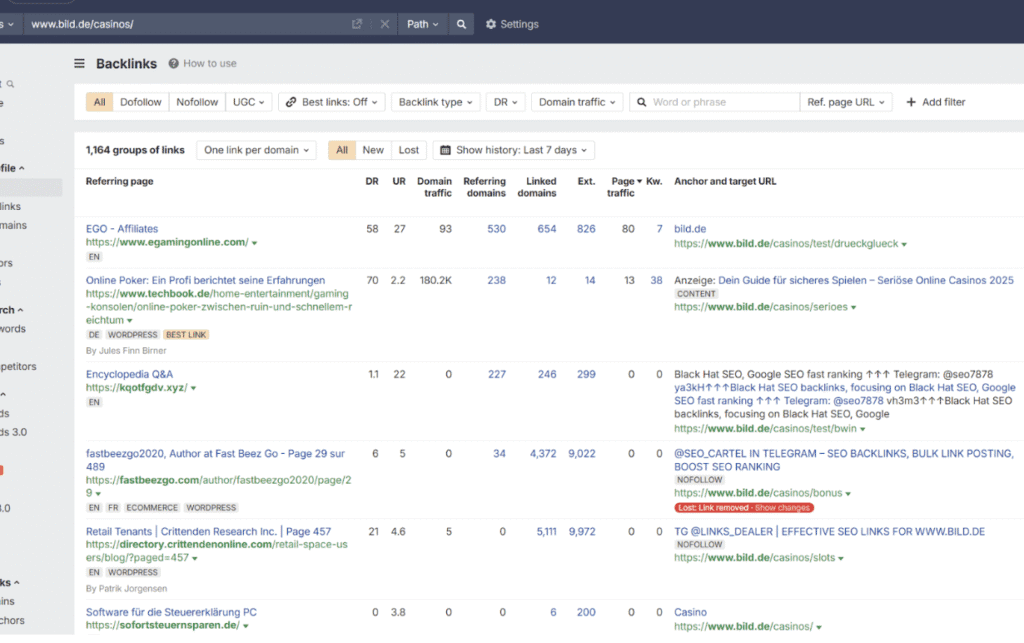
Source: Ahrefs
And the result? Ranking no 1 for the most desirable KWs.
But keep in mind that just because it is Parasite, it does not mean that there is no strategy. Doing this successfully takes experience, strategy and money. Australia hits differently; the SERPs are packed with parasitic SEO results:
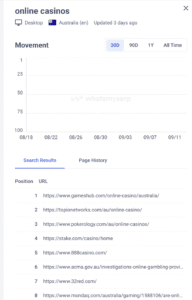
Source: WhatsmySERP
Parasitic results: position 1,2 10
And Google does not need to clean this up. So in my opinion, if you know how to succeed with Parasite SEO and Google is turning a blind eye to this practice, you should utilize it if you want to earn.
Q: With casino and betting sites, Google penalties can be devastating. How do black hat SEOs in iGaming calculate the risk versus the potential short-term rewards?
A: I think that once you are running any ‘ify’ SEO tactics like Parasite, like dropped domains, you are fully aware of the risks and you know you might lose it all. So you run more than 1 project and probably you have projects with a more white hat approach as well. But we saw in the latest June Core update that affiliate websites with the most white hat SEO got hit as well. So there is no guarantee that following the best SEO practices will work, and this is why we see the increase in SEO tricks right now on the rise.
Q: Do you think AI has opened the door to a new wave of black hat tactics in gambling SEO — from mass content generation to automated link schemes?
A: Absolutely! And I would say that mass AI content production is just a cheap approach to content, not really a black hat approach. I think the main danger of AI is that it can scrape websites and easily rebuild them, which can rob you faster than before, and this is where the main danger lies. But there are solutions, first of all, any bad SEO practices, AI content and copyright infringement can be reported: https://reportcontent.google.com/forms/dmca_search
You can block known AI tools in your robots, and operators can protect their name and assets with Trade mark and brand protection strategy.
Q: If you had to predict the next big black hat trend in iGaming SEO, what do you think it will be — and how long before Google catches up?
A: I honestly don’t know, and if I can be honest, it looks like Google does not really care. The search results are more broken than ever. I need to use Google many times to find useful results and get good answers, and many times I give up and go to ChatGPT. Google is losing its market share, and probably for a reason. As an SEO and user, I wish Google would fix itself, but I’m not holding my breath, and I am learning to work with the new reality, including black hat, including AI and ChatGPT optimisation.
Q: Google has invested heavily in spam detection and AI-driven quality systems. What makes certain modern black hat methods still able to slip under the radar?
A: I think Google has got decent AI detection tools for some markets but not all. So there are markets where good AI content can be very successful. As well, many AI tools that produce content or translate content got better, and the content that is produced is very decent.
And as this interview is in the ‘black hat’ tone, content is not always the king. The result on position 2nd in Australia for ‘online casino’ has almost no content; this is all the winning page has:
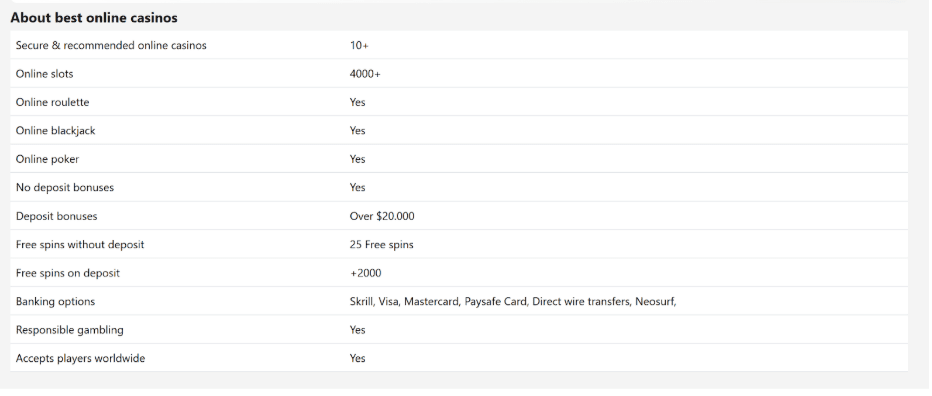
Casino Content Example
So content is currently not the most relevant thing in the black hat strategy and in the black/grey markets.
Q: There’s always a risk–reward balance with black hat SEO. From your experience, what separates the people who pull it off successfully from those who get penalized quickly?
A: The ones that have winning strategies are willing to take a risk. But if you have to be honest with yourself, starting an affiliate website on super good white hat SEO is risky as well as it never might make it off the ground. So if we will be truly answering this question, the question would have to be ‘what makes some affiliate websites successful and why some don’t make it, regardless of the SEO hat?’ The answer will be bravery, strategy, and the size of investment. As well, the ones that are visible in SERPs never stop learning, testing, and are not thinking ‘ let’s not change anything because it works right now’ – this is the thinking that will kill any good website or business sooner or later.
Conclusion
The evolution of black hat SEO in iGaming is more than a story of tactics — it’s a reflection of an industry under constant pressure from competition, regulation, and Google’s ever-shifting algorithms. As Ivana Flynn makes clear, shortcuts like parasite SEO and dropped domains aren’t just fringe experiments; in some markets, they’ve become the defining strategies for survival. What stands out in her perspective is the honesty: there is no simple “white hat versus black hat” divide anymore. SEO Success in iGaming often depends on a mix of bravery, strategy, and investment — and, increasingly, the ability to adapt to AI-driven changes in search. Whether or not Google chooses to act on the current state of SERPs, SEOs in this space must keep testing, evolving, and balancing risk with reward. The game is changing, but the winners will always be the ones willing to learn, innovate, and take calculated risks.




